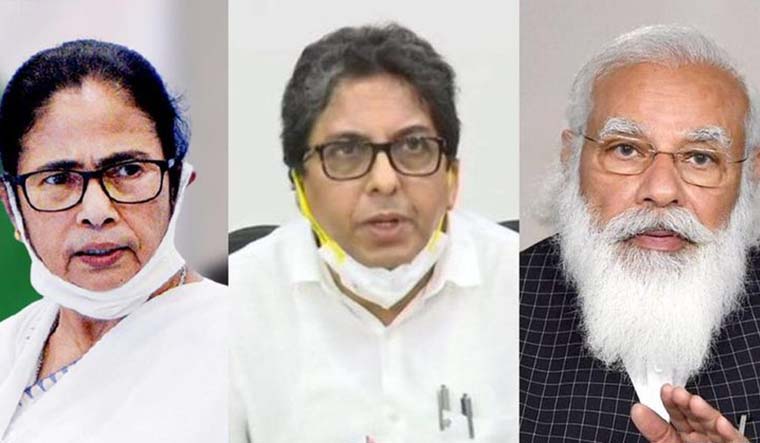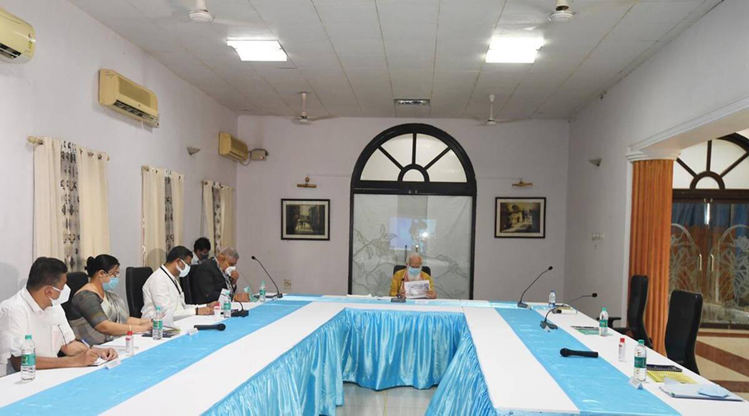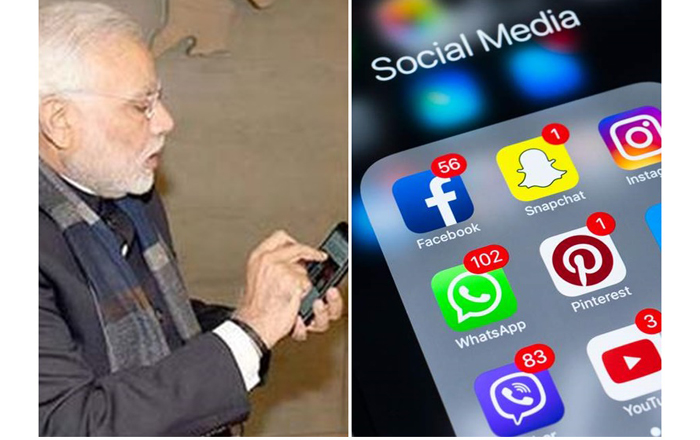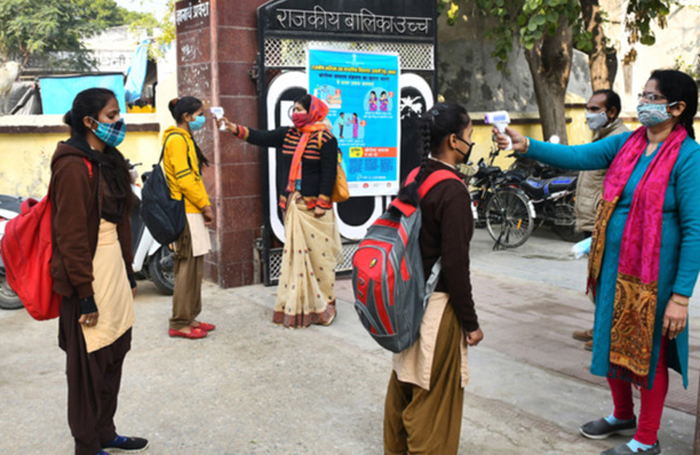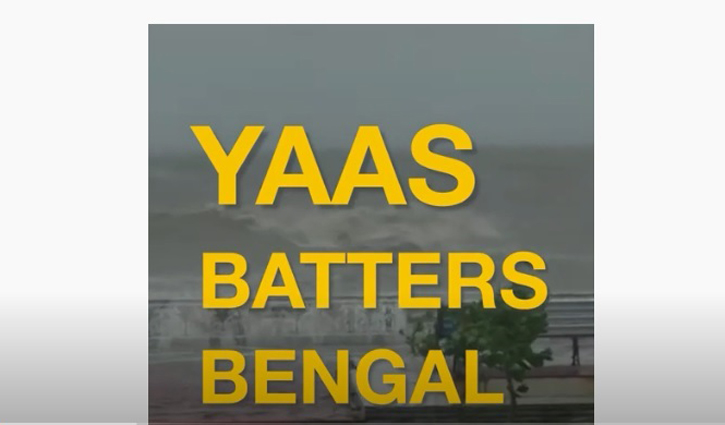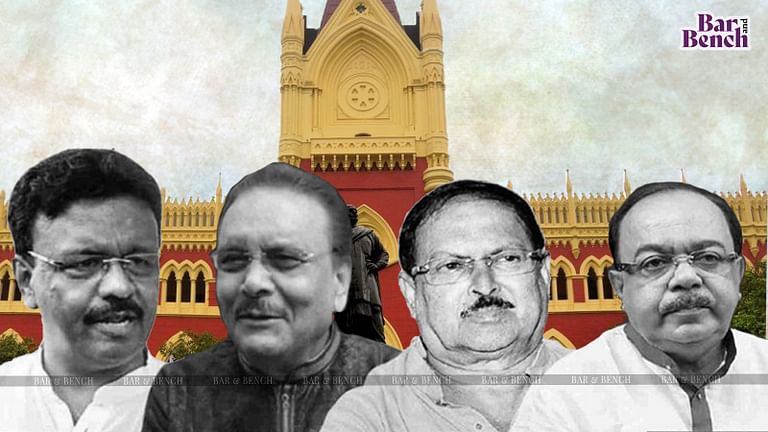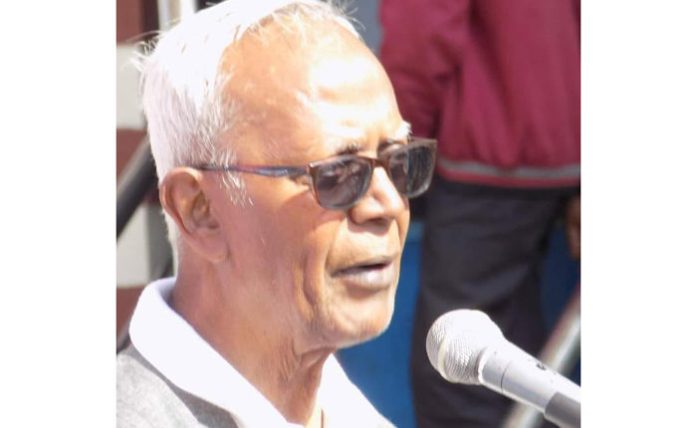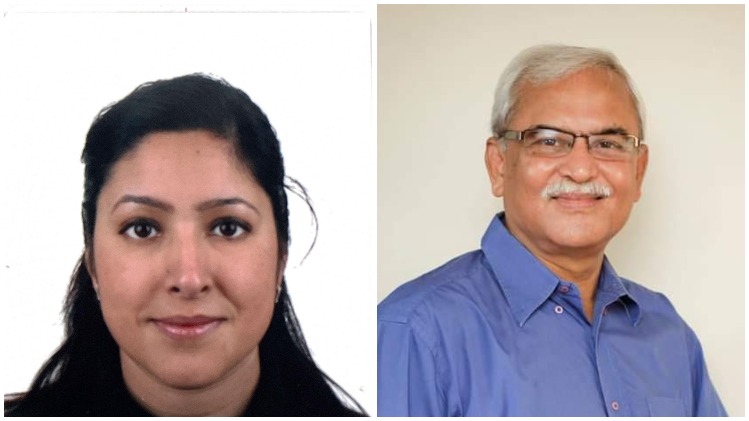Kolkata: Moments before his retirement, chief secretary Alapan Bandyopadhyay received a show-cause letter from the Centre asking him why he did not join work at 10 am in New Delhi as directed. The letter was received by the top IAS officer in the state a little before 5 pm, said chief minister Mamata Banerjee at Nabanna on Monday.
It now remains to be seen what will be the reply of the outgoing chief secretary or will the letter have any meaning after he did not take up his extension as granted by the Centre earlier.
Earlier in the day, Mamata Banerjee had written a five-page letter to Prime Minister Narendra Modi stating it was not possible for the state to release its chief secretary as he is involved in overseeing relief work after the widespread devastation from cyclone Yaas.
The game of one-upmanship between the Centre and the state started right after the Centre’s order recalling the West Bengal chief secretary reached the state secretariat Nabanna on Friday.
Just after his retirement, Alapan Bandyopadhyay, who was at the centre of the tussle between the central government and the state, was appointed chief adviser to the state, who keep overseeing all the disaster management, just as he was doing before his retirement.
The chief secretary was given a three-month extension on May 24 by the Centre at the state’s request. A department of personnel and training order on May 28, marked to the state had mentioned about the officer to report in New Delhi on May 31 at 10 am.
In the war of words that followed, Mamata Banerjee had expressed her anguish and shock over the Central order.
Experts, who have been tracking the developments, say that the Centre-state tussle will only lead to further straining of relations.
Former chairman of Calcutta Port Trust Bikram Sarkar feels bureaucrats have always been easy pawns in any political tussle. Sarkar, who has also been a former Lok Sabha MP, feels civil servants should not be dragged into any political tussle between parties. Civil servants run the country and the system works like a machine. If the machine is fiddled with in any way then the people of the country suffer as a result, said Sarkar.
The IAS officer though feels in the present case the outgoing chief secretary handled the situation in a dignified manner. “For a bureaucrat his self-respect is paramount. Had I been in the shoes of Alapan, I would have also told the chief minister to let me go on my appointed day and to find a suitable person instead. In fact, I think things moved in that direction after the chief secretary met the chief minister on Sunday,” said Sarkar.
Embittered by the treatment meted out to bureaucrats by the political bosses, Sarkar said, “There should be a healthy understanding between the bureaucracy and the political dispensation for the larger good of the people. It is getting diminished gradually. It is leading to a fear psychosis. The politicians think the bureaucrats are servants and can be moulded the way they want. They forget that we are not servants, but public servants. Personally, I have suffered for doing my duty when I was CoPT chairman. But it could not break me.”
Political analyst Udayan Bandopadhyay feels that keeping to the true nature of a political party, the Trinamool Congress will try to use the situation to their advantage. “I feel Alapan Bandyopadhyay was granted extension in his capacity as a chief secretary and recalling him after that makes little sense. As he has chosen to retire today, Mamata Banerjee will now say that at these difficult times, when the state is trying to give service to the people, the Centre is playing spoilsport. Every party will try to exploit the chinks in the armour of their opposition. The decision is bound to create a negative impact in the minds of the common man.”
“The CM’s asking if the Centre’s move against Alapan is because he is a Bengali can also become an important issue and people might start thinking on the lines of outsider-son-of-the-soil debate, which had such a deep impact during state elections. This surely is going to tickle the Bengali sentiment,” added Udayan.
Political analyst Biswanath Chakraborty, though, believes that such Centre-state tug-of-war has no impact on the minds of the common man. “The common man has no direct interest on such issues. Political parties always claim that everything they do is for the benefit of the people, but for the man on the streets, basic issues like social security, food and family are more important,” said Chakraborty.
Debadyuti Karmakar, sociologist feels that rather than indulging in the game of one-upmanship, every political party, in these pandemic situations, made worse by the devastation caused by the cyclone Yaas, should rise above the political divide and follow their responsibility towards the citizens of India. They should focus on the national development and the betterment of people in these hard times.


